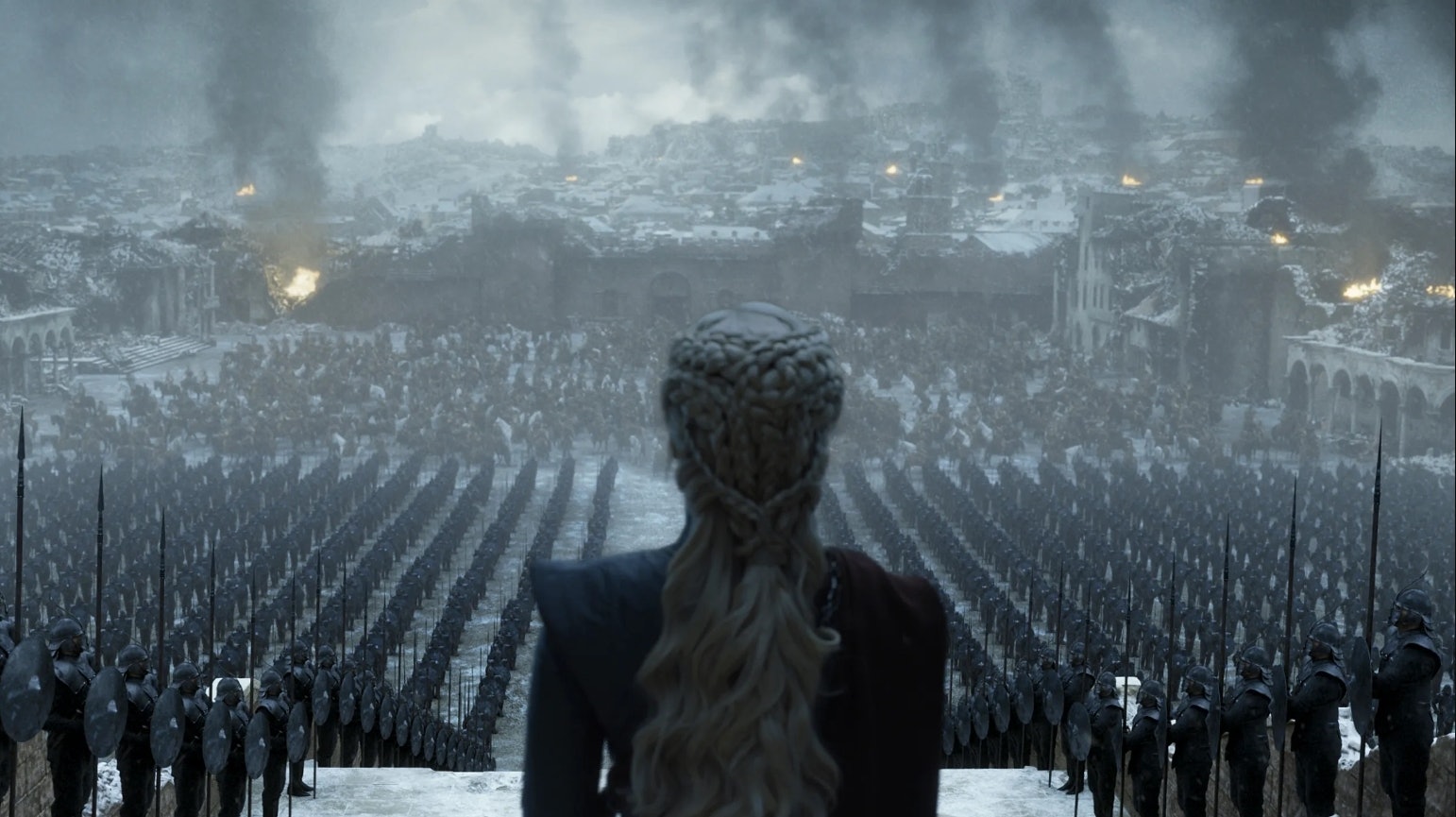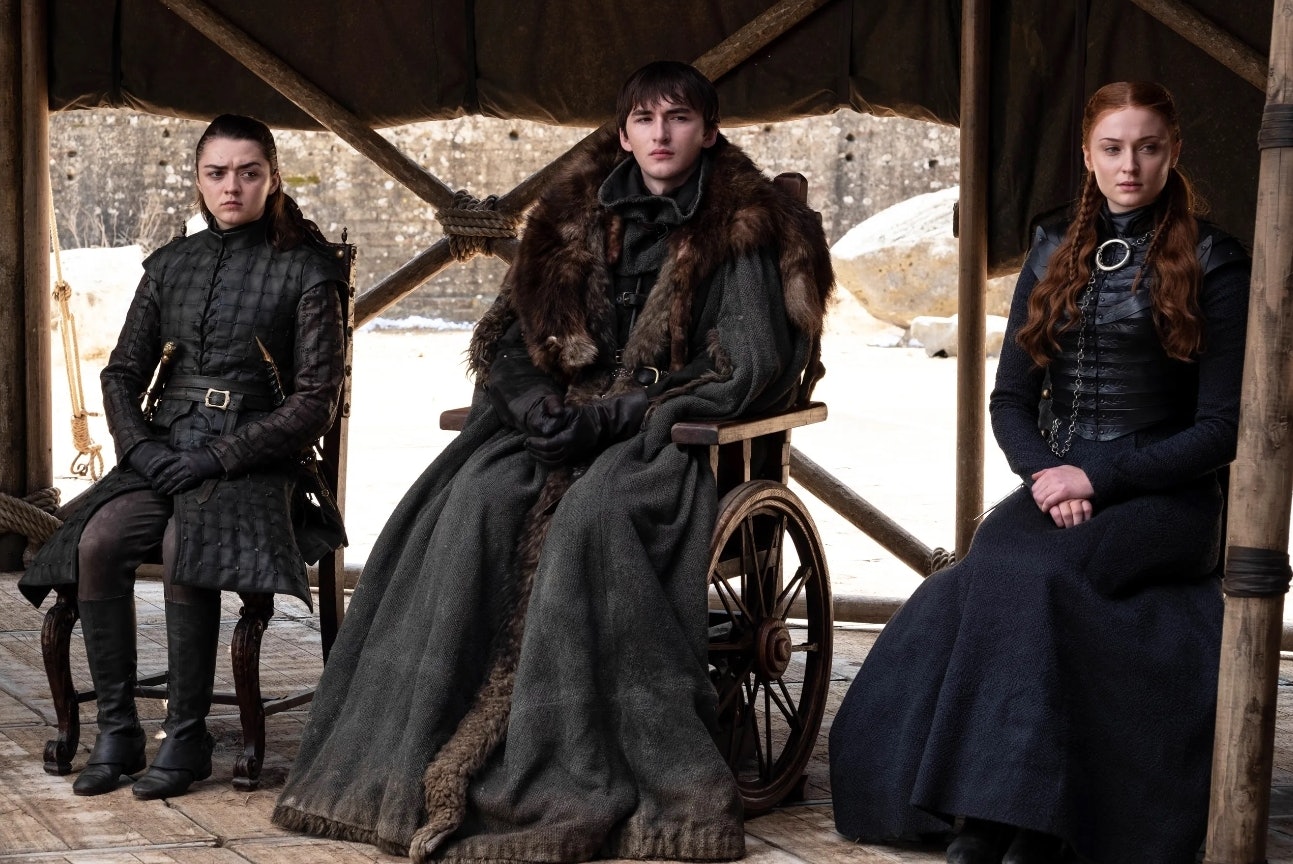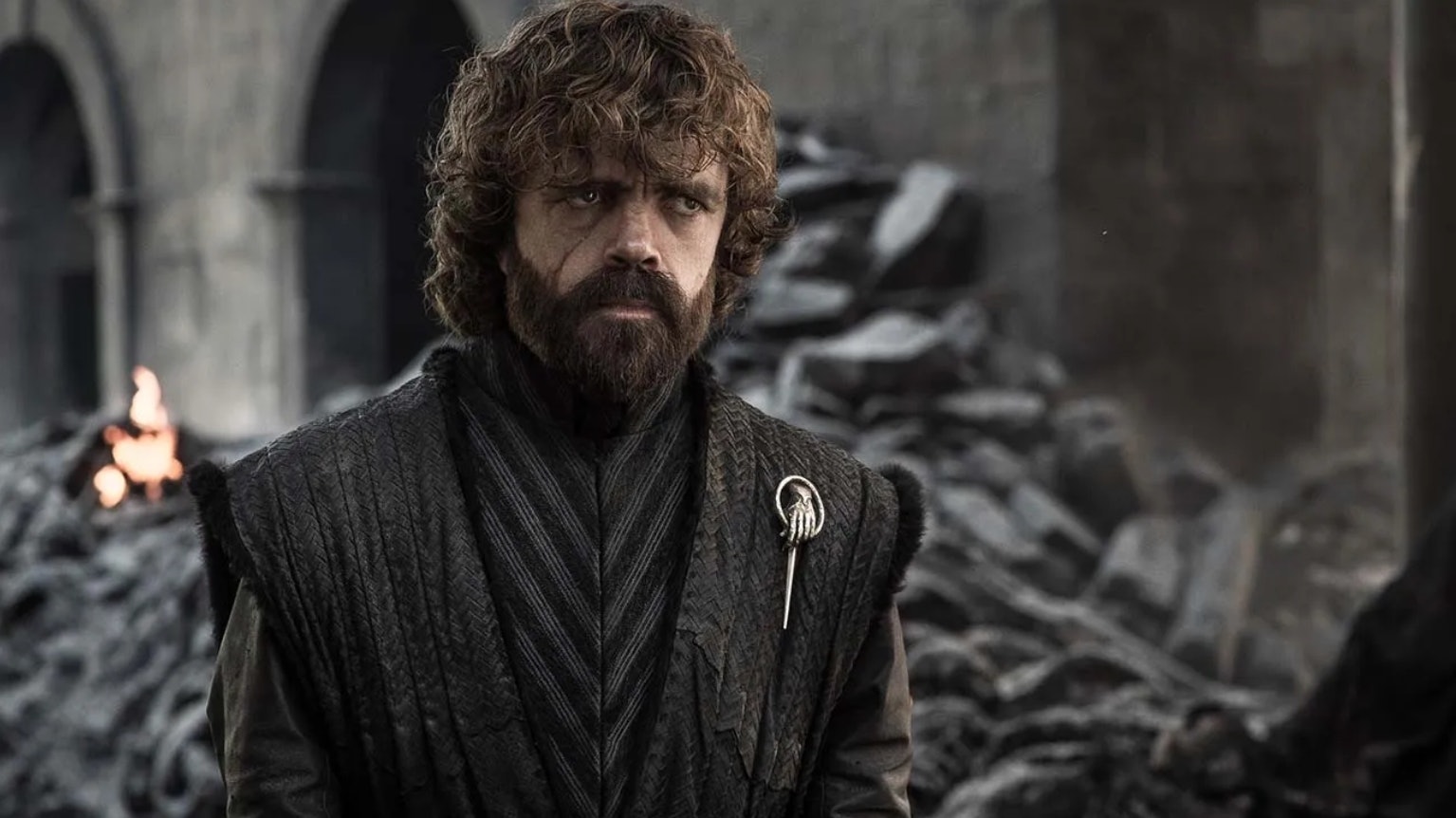
If you liked the finale of Game of Thrones, you’re in a pretty small club. The show received widespread acclaim in its early years, but everyone watching at home was already in a dour mood by the time it got around to its final episode. The finale itself didn’t exactly make things better, as Bran Stark bafflingly took the throne while Jon Snow murdered Daenerys Targaryen and then made his way north. Everything felt rote and conventional, making for a wholly unsatisfying end to a show that had become a monocultural phenomenon.
Much ink has already been spilled in discussing what went wrong — did showrunners David Benioff and D.B. Weiss lack the skill to work beyond the books? Did they try to fit the show’s ending into George R.R. Martin’s vision, even though it no longer made sense? But one underdiscussed problem is that the show and novels were explicitly designed to be anti-ending. Martin has said over and over that he looked at Lord of the Rings, which ends with evil vanquished and Aragorn crowned king, and found himself wondering how Aragorn would have managed the challenges that come with ruling.
Martin strove to tell a fantasy story in which the political realities were much more urgent and ongoing, which doesn’t necessarily merit a happy ending (or any ending at all). That’s why the first four seasons, when the world is still complex and it feels like the stakes keep growing, were so excellent, and it’s why the world started to feel smaller and smaller as the show cruised towards its conclusion. Endings almost always have to hem in the edges of a story to make them simpler.
The only honest ending for Game of Thrones was taken more than 10 years ago by another legendary HBO show, The Sopranos, which famously concluded on an ambiguous cut to black. You never learn what happens to Tony, but you come to understand that he’ll either live to see another day or he won’t. The lack of closure was the point.
Thrones, on the other hand, found itself winding its way toward a much more traditional conclusion after eight seasons of subverting viewers’ expectations of the fantasy genre. Sure, Daenerys, one of the show’s ostensible heroes, breaks bad, but that development feels rushed, and her demise is just a speed bump in a finale that’s otherwise about leaving most of its characters in good places.

Tyrion gets to remain close to power, Sansa gets to rule an independent Northern kingdom, Arya leaves to explore new horizons, and Jon returns to the wildlings that made him feel at home. In a show where most heroes wound up getting unceremoniously knocked off one way or another, this ending felt deeply traditional. Giving Thrones any sense of finality, though, was never going to feel like it was honest to the way Martin had built his universe.
Stories have endings, but real life just churns on. Leaders may fall and circumstances might change, but the world follows an endless series of cause and effect, and Martin’s story gets at the complexity of that reality. This may be why Martin himself has had such a difficult time wrapping up his own books. How do you end a tale designed to go on forever?

There are things to admire about the final season of Game of Thrones. The first half, which emphasizes the coming battle against the Night King, has an admirable sense of doom and finality, and there are moments between the characters worth treasuring. As a whole, though, Season 8 feels like it’s grappling with the realities of ending a story that would be better left unresolved. Martin began by wondering what would happen after Aragorn became had to rule. By the end of Game of Thrones, viewers who’d been taught to ask the same questions were left underwhelmed. What’s Bran the Broken’s tax policy?
HBO couldn’t make Game of Thrones forever, but when it was forced to conclude it had to bend to the demands of conventional storytelling. In doing so, it betrayed much of the subversive storytelling that had made the show the success it was. Whether other creators could have done better remains a question we’ll never have an answer to.







